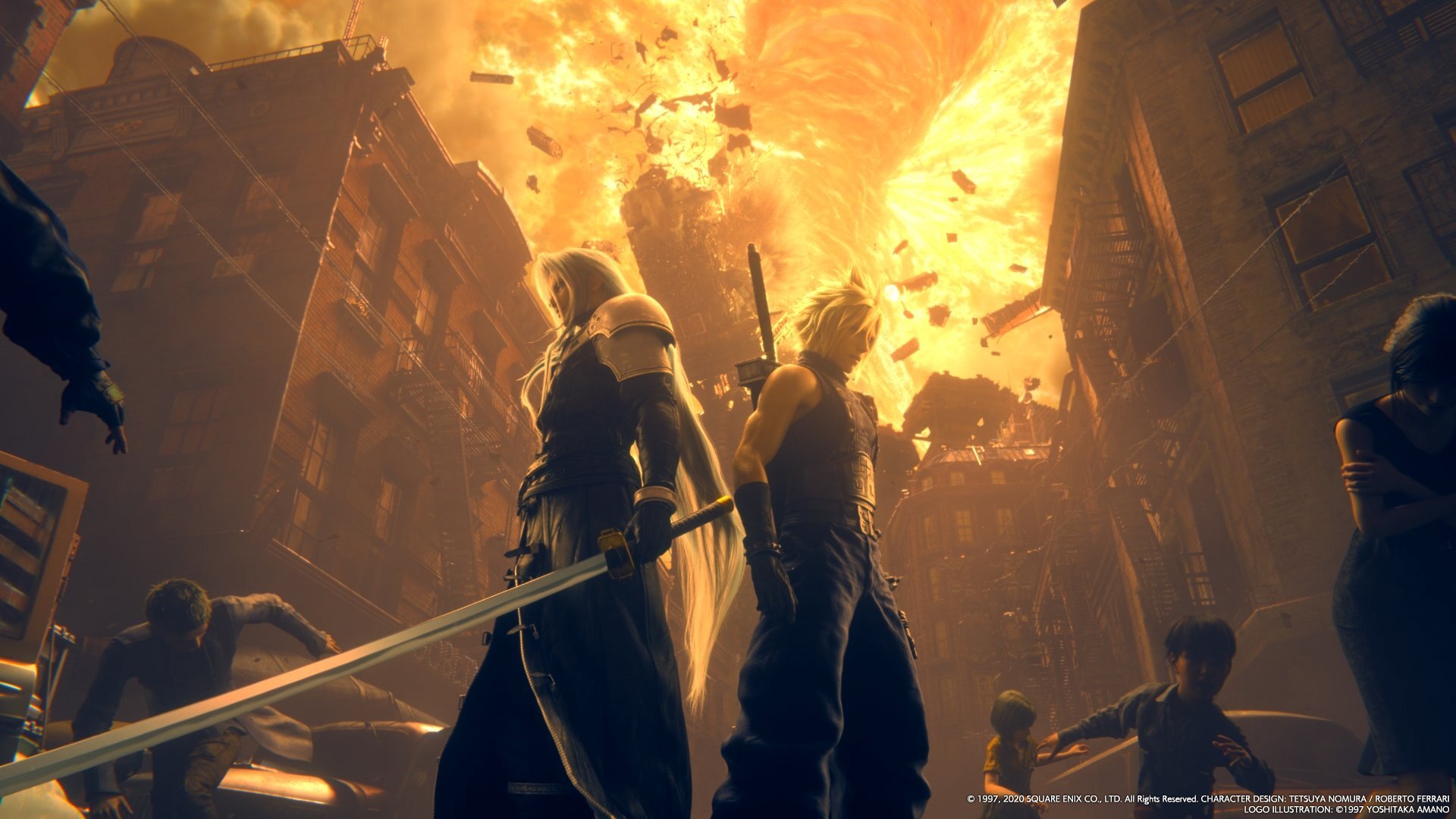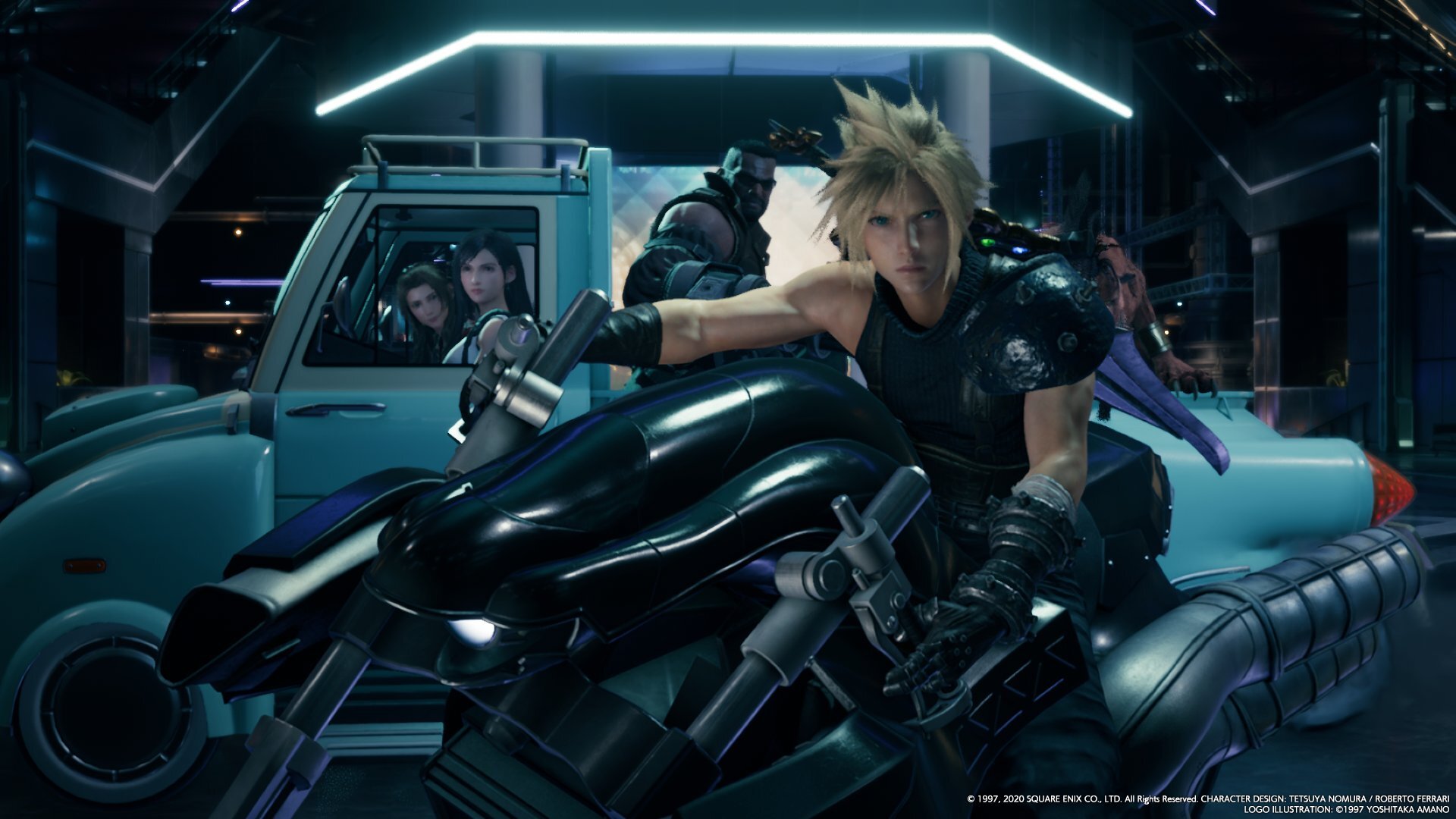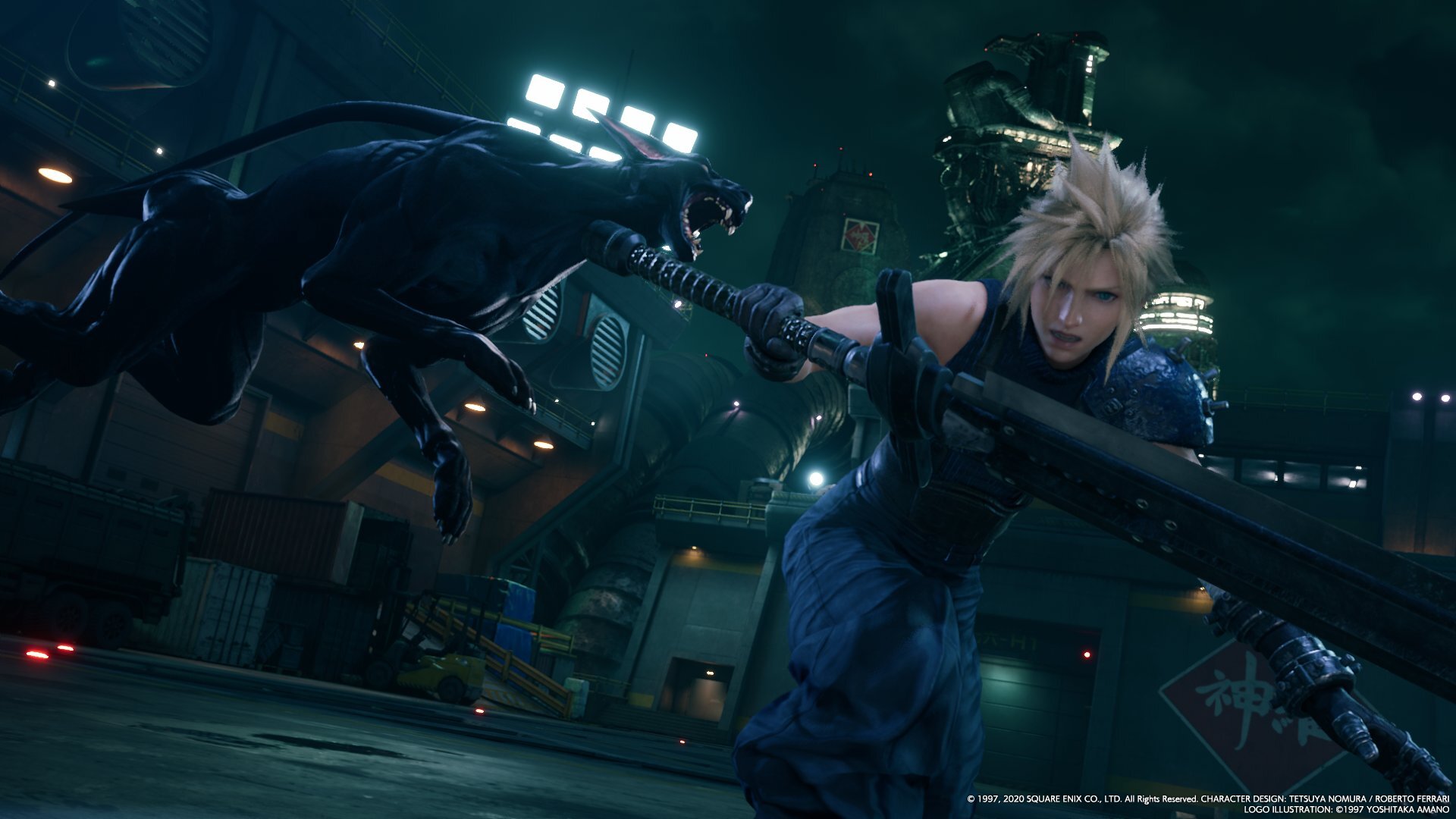Final Fantasy VII Remake Review – Return To The Promised Land
/In the collective consciousness of videogame culture, the world of Final Fantasy VII has ascended to a place of myth. It occupies a unique space in gaming memory – even among those who have never played it – as a larger-than-life story about a motley crew of idealists, mercenaries, and rebels fighting a deranged supersoldier and the corporation that created him. And while I never took a shine to its original release on the first PlayStation, it’s difficult to deny that Final Fantasy VII has a cultural reach far wider than mere game.
Final Fantasy VII Remake is a game that engages with all of that. It is a game in constant conversation with its original material. Regardless of what I, or anyone, think of Final Fantasy VII, it acknowledges that outsized legacy. For many, Remake would be satisfying enough as The Most Extreme Remaster Ever with the look and feel of the most triple-A of today’s experiences. Instead, it makes the astonishing choice to take this opportunity to retell the story as a heady brew about predestination in myth and the courage of narrative uncertainty.
That creative decision could be polarizing for those who desire an unwavering beat for beat remake of the original. And had Final Fantasy VII Remake executed that premise clumsily, it would have come off as a gross indulgence from creative director Tetsuya Nomura, a developer who is no stranger to author excess. Remake acquits itself on these changes masterfully, in no small part because the game is so thrilling to play.
It's a mighty big world, some of it I've seen but mostly I've only heard
Final Fantasy VII Remake opens on now-iconic sword boy Cloud Strife leaping into action with the eco-terrorist group Avalanche. Their mission: to destroy one of several reactors that leech the planet of its life force in order to power the sprawling city of Midgar. This first bit is just as exciting as older gamers remember it to be, but with an explosive finish made possible by the razzle-dazzle of modern game presentation values.
But after that lightning raid, Remake decelerates its narrative momentum and deliberately expands every moment from the original. What was once handwaved by the understood storytelling limitations of 1997 tech is now rendered in literal detail. Areas once depicted as a few screens are now closer to real-world scale. When Avalanche leaps into the field, we get into the process – how they get in and out, the tactical maneuvers necessary to make progress, and the opposition they face - and in moments of downtime, when Cloud is making his way through the slums while keeping his head down, Remake begins to feel like a slice-of-life drama.
Square Enix made clear a while back that Remake is meant to be the first in an ‘episodic’ series, covering the modest portion of the original that was spent entirely in the city of Midgar. And initially, the experience can feel suspect, padded by extraneous material that balloons the game into a forty-plus hour experience. At my most uncharitable moments, I wanted to get on with it, inclined to kvetch that this was really just a twelve-hour game lying beneath hours of unnecessary kludge.
But in truth, Final Fantasy VII Remake fires on all cylinders. The game’s combat is finely tuned – the charming but dated Active Time Battle system being replaced by the kind of tactical hack-and-slash you’d find in modern Japanese titles. The reimagined score is incredibly extra, swelling with dynamic energy, and packed with layers and motifs. The voice acting fills in emotional subtext that could only be guessed at in the original. Remake confidently brings meaning and detail to life, making for an essential take on a well-known story.
But in directions, actions and words, cause and effect, you need consistency
Remake’s narrative achievements are matched by gameplay that coalesces around the series’ foundational pillars. While classic monsters and familiar spells are present, the combat feels like the culmination of ideas from throughout the series, especially 2016’s Final Fantasy XV and 2009’s Final Fantasy XIII. It’s possibly the first time that Final Fantasy’s experiments with action-focused combat don’t feel like systems struggling against themselves.
The Active Time Bar from the original is reworked. Previously, it determined when you could issue commands to your party members. Now, it’s a meter that fills up when you make basic attacks, and each segment can be spent on weapon skills, magic spells, item use, and summoning abilities. Remake encourages you to switch constantly, as the ATB bars fill slower for characters under AI control. More critically, AI-controlled party members are not inclined to use advanced skills on their own, which is fine, since each party member plays so differently.
Barret deals primarily in ranged attacks, and can charge up a powerful barrage. Cloud can switch to a counter-attacking guarded stance that reduces his movement, but punishes attacking foes. Aerith lays down zones of power and can send out a fabulous crystal nova that deals area damage. Tifa is by far my personal favorite, delivering rapid kicks and punches and harnessing a collection of stagger-inducing skills.
Colorful magical spheres known as Materia remain an essential part of Remake. As in the original, they allow you to build to a preferred style or strategy, adding a layer of flexibility onto each character. You might pack Tifa’s attacks with some elemental punch, transform Barret into a long-range magician, and equip Cloud with deadly techniques that increase his stagger and meter build up. Strategic use of Materia loadouts is just as critical to victory as your combat tactics.
That’s because Final Fantasy VII Remake’s combat asks more than you’d expect. Enemies work together to take advantage of synergies. They’ll single out a character who is separated from the others and pounce on them. Timing is one of the most essential skills to master, as a cure spell can go to waste when interrupted, and powerful attacks can be whiffed on enemies smart enough to dodge a charging attack when they see one. And while most enemies have a weakness that can be exploited, you’ll spend just as much time protecting yourself from enemy tactics.
When you’re operating at peak efficiency, Remake takes you to a place filled with exhilarating momentum, where your spells and techniques are coming together as you channel perfect timing with deliberate strategy. Apologies to the many, many games that make up this venerable series, but Final Fantasy combat has never felt as gratifying as it does in Remake.
You’re just a storyteller not trying to escape responsibility
The original Final Fantasy VII had blunt concerns about class stratification under the shadow of industrial degradation, but lacked teeth. Remake invokes more thematic complications by questioning the costs of violent conflict, as well as the complicity of citizens in resource consumption. It’s a surprising take when you consider Nomura, Kitase and company could have just made everybody cool and let the action run hot, letting the smoke conceal a lack of ambition.
And that slice-of-life vibe I mentioned earlier? It lets the core cast feel more emotionally realized than they’ve ever been. Remake isn’t simply a retroactive prequel to the bizarre CG film Advent Children, it’s a depiction of heroes reflecting on their mistakes and stumbling through the wreck of a city with no hope. By depicting everything in such intimate detail, the stakes feel more fraught. Remake sides with Cloud and Avalanche, but it doesn’t shy from moral uncertainty as is made most evident by how the underclasses suffer when Shinra retaliates.
In chapters where Remake slows down, you’ll be given several optional side quests that can feel like uninspired busywork. Go there, kill those enemies, fetch this thing; it’s all typical sidequest fodder. But they’re also an opportunity to forge empathy for the people of Midgar and contribute to Cloud’s humanizing arc by blunting the sharper edges of his personality. While Cloud says he’s only in it for the money, over time his actions betray empathy even as he tries to conceal it under his stoic facade.
Remake also makes the bold choice to pull in wild new ideas about destiny, memory and myth that challenge everything we expect out of commercial trips down pop culture memory lane. To say any more would be spoiling, but I’m certain that all of us will be talking about the new twists in Remake for a very long time. Ultimately, Remake doesn’t just color in the outlines given to us by the original Final Fantasy VII, it instills an appreciation for our shared memory of it.
In the end, when the world of Remake is so painstakingly realized, the combat so immersive, the characters this fully brought to life, I found it difficult to remain steadfast in my apathy towards its source material. Even as the game reaches its heart-stopping conclusion, hinting at not just a greater villain to confront, but a saga on the verge of sweeping you away, Remake feels complete.
Highlights
Ambitious expansion of the original narrative makes for richer characters, stronger themes and immersive story
Sidequests are mechanically lacking, and stifles the momentum of the game’s final chapters
Reimagined score is very extra, enriching classic themes with complex layers and sophisticated use of motifs
English voice acting is best in class, please give Tifa’s Britt Baron a BAFTA or something
Combat fully realizes the excitement of action-packed skirmishes with strategic depth
Clever mid to late game story twists build up to a thrilling conclusion that sets up exciting possibilities
What I’ve Played
Completed story in a playthrough of 50 hours
Finished all but three sidequests
Brought main character Cloud Strife to level 37
Acquired 32 trophies, for a completion of 46 %
[This review is based on a PS4 review code provided by Sony Interactive Entertainment.]




















Assassin’s Creed Shadows greatly blends the classic Assassin’s Creed stealth with the RPG elements of recent entries. Its dynamic world, seasonal changes, and improved stealth mechanics make exploration a joy, but Yasuke’s restrictive gameplay, overall story, and a half-baked notoriety system hold it back.